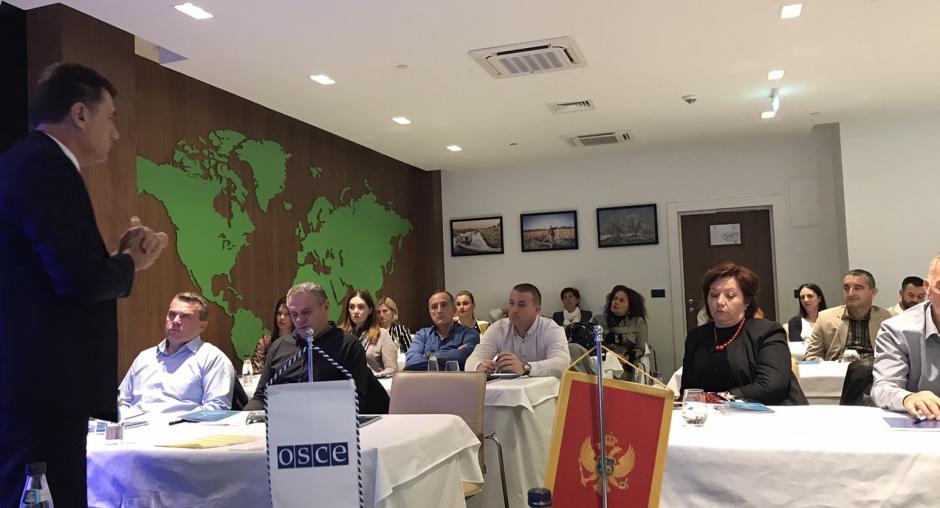Educators are at forefront of defence against violent extremism tendencies, conclude participants at OSCE training course in Montenegro

Defence against violent extremism and radicalization that lead to terrorism requires an integrated approach, and educators are at the forefront of the defence against violent extremism tendencies. This was concluded at the workshop “Prevention of Violent Extremism and Radicalization Leading to Terrorism for Primary and Secondary School Professors”, organized by the OSCE Mission to Montenegro, on 19 and 20 November 2019 in Bijelo Polje and Bar.
The National Co-ordinator for Combating Violent Extremism and the Ministry of Education co-organized the workshop, which gathered 80 teachers from across Montenegro. Assessing risks and mechanisms to prevent and combat violent extremism, online radicalization and the misuse of social networks were the focus of the training. Emphasis was put on how the internet can be used to promote violent extremism and radicalization that lead to terrorism.
Joh Corrigan, the Mission’s Programme Manager for Security and Co-operation, said that violent extremism has become a serious threat facing societies across the world. “In the face of such threats, there is no single solution. Security responses are important, but not sufficient. We need soft power, such as education. In particular, we need relevant, inclusive and equitable quality education,” said Corrigan.
Corrigan said that education is a tool to prevent violent extremism. “The OSCE seeks to assist countries to deliver education programmes that build young people’s resilience to violent extremist messaging and foster a positive sense of identity and belonging. This work must be undertaken here in Montenegro.”
Dragan Pejanović, Montenegrin Interior Ministry State Secretary and National Co-ordinator for Combating Violent Extremism, said that teachers and professors have personal contact with young people. “They provide a safe space that can foster a sense of inclusion and critical thinking. It is the best line of defence against violent extremism tendencies that threaten the rule of law,” said Pejanović.
Marash Dukaj, Director-General of the Education of Members of Minority Peoples and Other National Communities Directorate in the Education Ministry, said that education is the best non-violent method that encourages positive change and affects society and the life of each individual. “That is why it is important to focus on working with children, young people and adults, especially those who are members of vulnerable categories, but also working with professionals,” said Dukaj.
The seminar, led by Marija Đorić, research associate at the Institute for Political Studies in Belgrade, was the part of Mission’s support to the Montenegrin Interior Ministry in implementing priorities of the National Action Plan for 2019.
